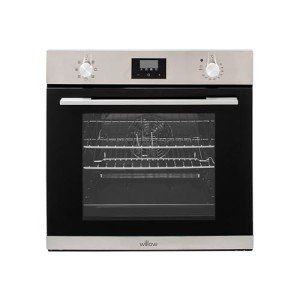Need Inspiration? Try Looking Up Built In Appliances

Unveiling the World of Built-in Appliances: Enhancing Modern Living
Built-in appliances have actually reinvented the method individuals approach home design and effectiveness. These important elements of modern homes not just make the most of space however likewise create a smooth visual, making kitchens and other locations look polished and organized. From ovens that fit snugly within cabinets to refrigerators that blend into the style, built-in appliances use both functionality and design. This short article explores the different types of built-in appliances, their benefits, style considerations, and addresses some often asked questions.
Comprehending Built-In Appliances
Built-in appliances are gadgets created to be integrated into kitchen or home structures effortlessly. Unlike freestanding appliances, which can be moved and rearranged, built-in models are usually installed into kitchen cabinetry or specific built-in spaces throughout brand-new home building and construction or considerable renovations. This enables for a cohesive design, optimizing functionality while improving visual appeal.
Kinds Of Built-In Appliances
The most typical categories of built-in appliances consist of:
| Type | Description | Examples |
|---|---|---|
| Cooking Appliances | Include ovens, microwaves, and stovetops that can be built into the cabinets. | Built-in ovens, microwave drawers, induction cooktops |
| Refrigeration | Appliances that blend into the kitchen while keeping their cooling functions. | Built-in refrigerators, red wine coolers |
| Dishwashing | Dishwashing machines developed to be set up behind kitchen cabinetry doors for a structured look. | Integrated dishwashing machines |
| Laundry | Appliances like washers and dryers developed to fit nicely into laundry rooms. | Built-in cleaning machines, combination washer-dryer units |
| Other | A category that may include ventilation hoods, coffee makers, and custom appliances. | Built-in coffee machines, warming drawers |
Benefits of Built-In Appliances
1. Area Efficiency
Built-in appliances are designed to use area better. They can be tailored to fit comfortably within existing cabinets or unique architectural features of a home.
2. Visual Appeal
The combination of appliances enables homeowners to create a clean and cohesive appearance. The absence of large devices promotes a tidy environment, making spaces, particularly kitchens, look more large and organized.
3. Boosted Functionality
Numerous built-in appliances included sophisticated features, allowing users to maximize their culinary efforts. The seamless style likewise motivates effective workflow in the kitchen, an important element for cooking enthusiasts.
4. Increased Property Value
High-quality built-in appliances typically add significant value to homes, as they reflect modern-day style and functional efficiency. Prospective purchasers are usually attracted to homes geared up with these updated features.
5. Customization Options
Property owners can select from a range of surfaces, designs, and technologies, permitting them to personalize their area. Whether choosing stainless steel, panel-ready alternatives, or unique colors, there is a nearly limitless variety of options.
Design Considerations for Built-In Appliances
While the integration of built-in appliances can significantly improve the look and function of an area, particular style considerations should be considered:
- Measurements: Accurate measurements are crucial for ensuring an appropriate fit within cabinetry.
- Ventilation: Proper ventilation is necessary for cooking appliances to prevent getting too hot and to preserve air quality.
- Power Supply: It's essential to ensure that the necessary electrical and pipes infrastructure remains in location before setting up built-in appliances.
- Availability: Design needs to prioritize user availability to guarantee that utensils, appliances, and work areas are within easy reach.
- Visual Compatibility: All built-in appliances need to be chosen to complement the design theme of the home.
Regularly Asked Questions About Built-in Appliances
1. Are built-in appliances more costly than freestanding ones?
Built-in appliances tend to be more costly due to their custom-made nature and installation processes. Nevertheless, the included value and advantages can validate the financial investment, specifically in premium designs and innovations.
2. Can built-in appliances be moved quickly?
No, built-in appliances are typically not designed to be moved. They are installed into kitchen cabinetry, making relocation difficult and often needing considerable effort and renovation.
3. How do I preserve built-in appliances?
Maintenance depends upon the kind of appliance. Regular cleansing is suggested in addition to routine look for any service issues. Always describe the manufacturer's standards for particular upkeep needs.
4. Are built-in appliances energy-efficient?
Many built-in appliances are developed to be more energy-efficient than older or freestanding models, frequently equipped with features that lessen energy intake.
5. Can I install built-in appliances myself?
While some house owners may select to set up appliances themselves, it's typically suggested to work with an expert, specifically for electrical or pipes connections. Appropriate installation makes sure safety and ideal efficiency.
Built-in appliances represent an ingenious approach to accomplishing a modern-day, efficient, and visually pleasing home. With built-in / integrated hobs and ovens , homeowners can improve both the performance and design of their home. As the demand for sophisticated and practical designs continues to increase, the integration of built-in appliances will remain a substantial trend in contemporary home style. By thinking about the advantages, design needs, and upkeep requirements, individuals can make educated decisions about incorporating these sleek and sophisticated devices into their homes.

